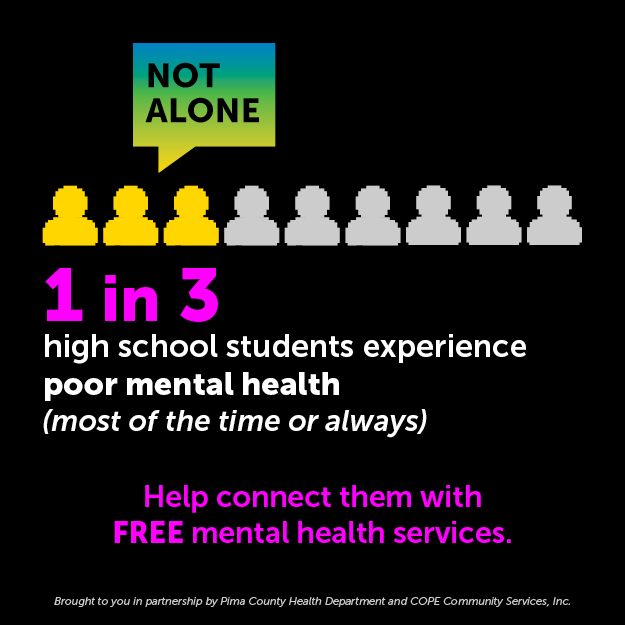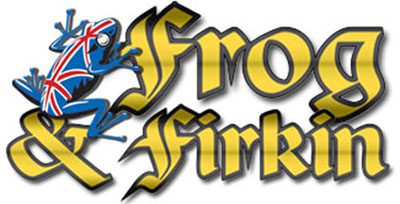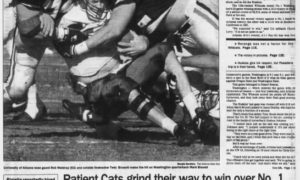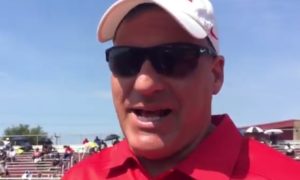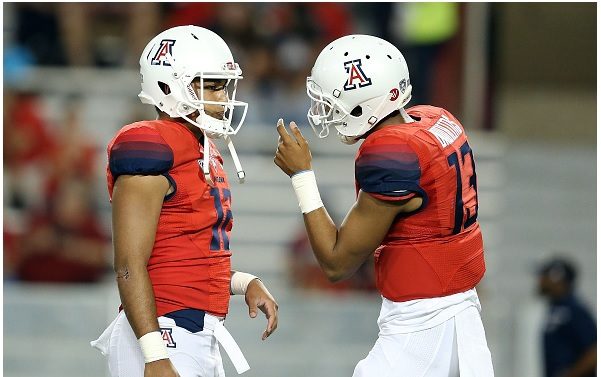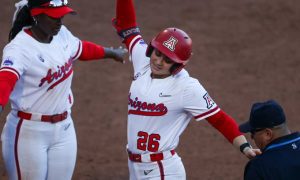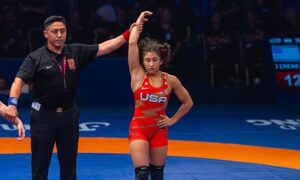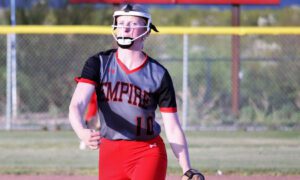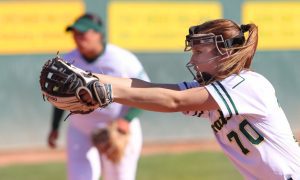FOLLOW @JAVIERJMORALES ON TWITTER!
[rps-paypal]
[ezcol_1half id=”” class=”” style=””]

Dr. Gayle Hopkins
The grief over the loss of Dr. Gayle Hopkins, a longtime Arizona athletic alumni administrator endearingly called “Doc Hop”, spread over social media Monday from former Wildcats who were personally touched by him.
“Dr. Gayle Hopkins took care of me when I was a young slightly misdirected freshman from North Carolina,” former football player Heath Bray wrote on his Facebook wall. “He had an open line of communication with my dad, and made sure that the things I needed to get done, got DONE.
“I can say that I learned a lot from Doc Hop. How to be accountable and how to represent our beloved Arizona. He was always excited when we would come down for events, and was always an example of the pride and responsibility we have as students and alumni. I remember him putting his arm around me, when I was 40 years old, and telling me he was proud of me. That is what I will remember. I wish I could have told him how much pride I felt for him.”
Former Arizona quarterback George Malauulu wrote this in response to Bray’s post:
“There are men that impact your life as you journey thru your daily walk. Dr Gayle “Hop” Hopkins was one of those mentors to me. Thank you Dr Hop for your flexible, efficient, reasonable wisdom that helped me thru an important time of my life. You have blessed many of us and in so have blessed those that each of us touch. I love you.”
[/ezcol_1half]
[ezcol_1half_end id=”” class=”” style=””]

Gayle Hopkins was Arizona’s first national champion in any sport, winning the long jump in 1964.
Dr. Gayle Hopkins (1941-2016)
— Competed in 1964 Tokyo Olympics as a long jumper.
— Charter member of Arizona’s Sports Hall of Fame.
— Worked at Arizona for 27 years until his retirement in 2010.
— Was active in the Tucson community working with the Urban League, the NAACP, Arizona Black Alumni Association and other organizations.
Yesterday we lost Gayle Hopkins. Served @UofA for 27 years. Our 1st ind. NCAA champion '64 long jump, Olympian, charter member UASHOF.
— Greg Byrne (@Greg_Byrne) March 21, 2016
[/ezcol_1half_end]
“In regards to anything else, there is not any pain surrounding my experience at the ’64 Games. It is one of the best experiences that I have ever had. I still have friendships that were developed in ’64.”
— Dr. Gayle Hopkins
2004 interview with Tucson Citizen regarding not winning a medal in the Tokyo Games although claiming an NCAA national title that year in the long jump.
[ezcol_1half id=”” class=”” style=””]
Knowing that Hopkins was born in Tulsa and prepped at Davenport, Iowa, the overriding question in my mind was how did he come to Arizona in 1961?
He competed one year at Trinidad State (Colo.) Junior College, where former Arizona track and field coach Carl Cooper noticed him and recruited him to Tucson first as a high jumper. Hopkins evolved into one of the best long jumpers in NCAA history.
A 1987 Des Moines (Iowa) Register story detailed Hopkins’ athletic prowess while at Trinidad, where he was a starting quarterback for the football team in 1960 in addition to being a track standout.
“My first game was against New Mexico Military and Roger Staubach was the other quarterback,” Hopkins was quoted as saying. “They beat us. He was cocky, too.”
[/ezcol_1half]
[ezcol_1half_end id=”” class=”” style=””]
[/ezcol_1half_end]
Hopkins, who was also a standout basketball player and baseball pitcher at Davenport High School, was never short on stories or serving as sounding board for Arizona athletes while they expressed theirs to him.
He was employed by Arizona from 1983 to 2010, spearheading the effort to secure support from former athletes as well as other special efforts to incorporate alumni in departmental activities. He also directed projects to influence former athletes to return to complete their degree.
Arizona’s first individual national champion with his long jump title in 1964 — the same year he competed in the Tokyo Olympics — Hopkins is a member of the school’s sports hall of fame. Hopkins is also a member of the Quad Cities Sports and Drake Relays halls of fame.
After graduating from Arizona in 1964, he attended the Antioch School of Law in Washington, D.C., as well as complete his graduate work at San Francisco State and Claremont (where he earned his doctorate). He taught and worked in several cities, and took track teams to Europe and Africa, before returning to Arizona in 1983.
After his retirement six years ago, he was active in many Tucson community activities including the Urban League Caucus. He was on the Board of Directors for the Arizona Children’s Association and the Carondelet Health Network Public Policy Council. He also served as the president of the University of Arizona Black Alumni Association.

Gayle Hopkins won eight letters in four sports at Davenport, Iowa, before coming to Arizona in the early 1960’s (Quad Cities Times photo)
“So many UA athletes have so many different stories of Dr Hop & what he truly meant to them as young adults & then as older adults,” former Arizona women’s basketball player Apryl Garnett-Neal wrote on her Facebook wall. “Whenever I went to Tucson Dr Hop was that person I ALWAYS had to visit because he kept it 100 without a doubt! He’s meant SO much to us & honestly I owe a lot to him as he kept me in college.
“Without a doubt he paved the way for a lot us on SO many levels. Without him there are no UA Black Alumni Clubs. He lived a fruitful life & I’m so thankful to have had the opportunity to have him a part of mine. I’ve said it to him before but say it again with tears in my eyes THANK you & (love) you! Rest with the Angels #BEARDown.”
Former Arizona football player Pulu Poumele wrote: “Always a smiling face and a great outlook on life. Always an advocate for student-athletes, and always a great example! Doc you have made an impact in this life. Heaven is getting a great man.”
The son of a boxer, “Hoppy” as Hopkins was called in high school, unloaded a long jump of 26 feet, 2 inches, in 1964 to break the Drake Relays record of 26-1.5. The old mark was held by none other than four-time Olympic gold medalist Jesse Owens. Hopkins went on to break the meet’s triple jump record by nearly 2 feet at 51-8.
Hopkins’ long jump mark at the Drake Relays remained Arizona’s outdoor record until former Cholla High School great Vance Johnson broke it in 1982 at 26-11.25 in winning the NCAA title.
Former Arizona basketball player Reggie Geary: “Dr. Hopkins was “old school” and was there for me with wise advice, a smile, and a pat on the back at a very tough time in my professional career as a young coach. UofA athletics has definitely lost a special father figure in the Wildcat family. RIP Dr. Hopkins! #Respect”
Former Arizona quarterback Ron Veal: “We lost a good brother in Gayle Doc Hopkins, very influential in my life. There was never a time he wouldn’t mind sharing his advice and life lessons. #Arizona”
Hopkins was publicly acknowledged when Sean Elliott, the best basketball player in Arizona history, asked Hopkins to induct him into the Arizona Hall of Fame.
“That was very special for me,’ Hopkins said in a 1994 interview with the Tucson Citizen. “That means so much to me that he feels that way about me.’
Elliott reportedly wandered to Hopkins’ office occasionally at McKale Center for support when Hopkins was the associate director of athletics for student relations overseeing recruiting and academic counseling. His caring ways touched athletes whether they were walk-ons or star athletes like Elliott and fellow former hoops player Herman Harris, who came across Hopkins while working on his undergraduate degree 20 years after his college career ended in the mid-1970’s.
“When I was thinking about going back to school, everyone told me to talk to Doctor Hopkins,” Harris told the Citizen in the 1994 interview. “From what everyone told me, the man walks on water. I haven’t seen anything from him to show that that’s not true.”
Hopkins is survived by his wife Patricia Hopkins, daughter Alissa, a 1992 Arizona graduate, and son, Chris, who played running back at Arizona State from 1992-95.
ALLSPORTSTUCSON.com publisher, writer and editor Javier Morales is a former Arizona Press Club award winner. He is a former Arizona Daily Star beat reporter for the Arizona basketball team, including when the Wildcats won the 1996-97 NCAA title. He has also written articles for CollegeAD.com, Bleacher Report, Lindy’s Sports, TucsonCitizen.com, The Arizona Republic, Sporting News and Baseball America, among many other publications. He has also authored the book “The Highest Form of Living”, which is available at Amazon.


